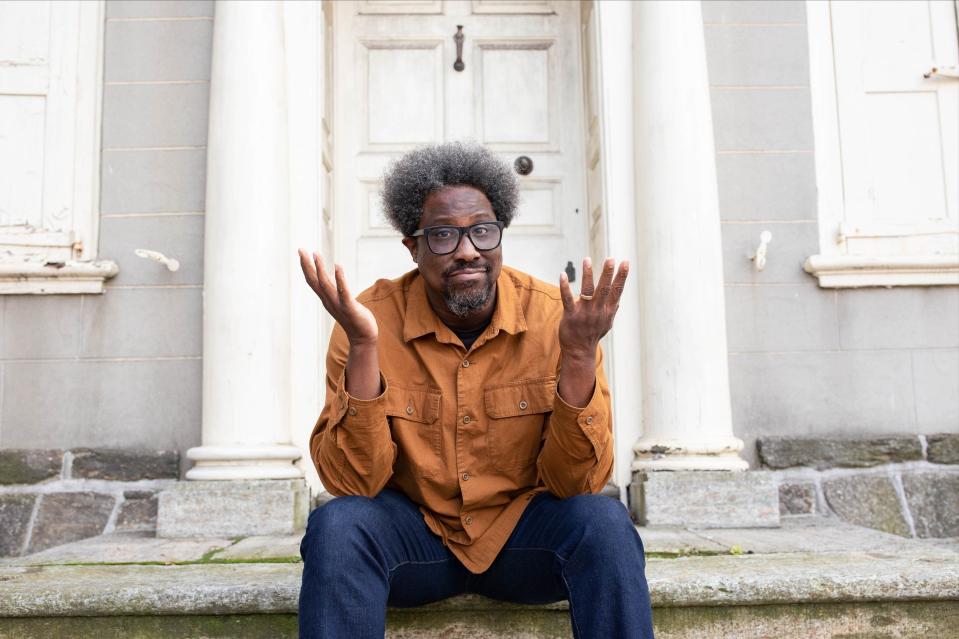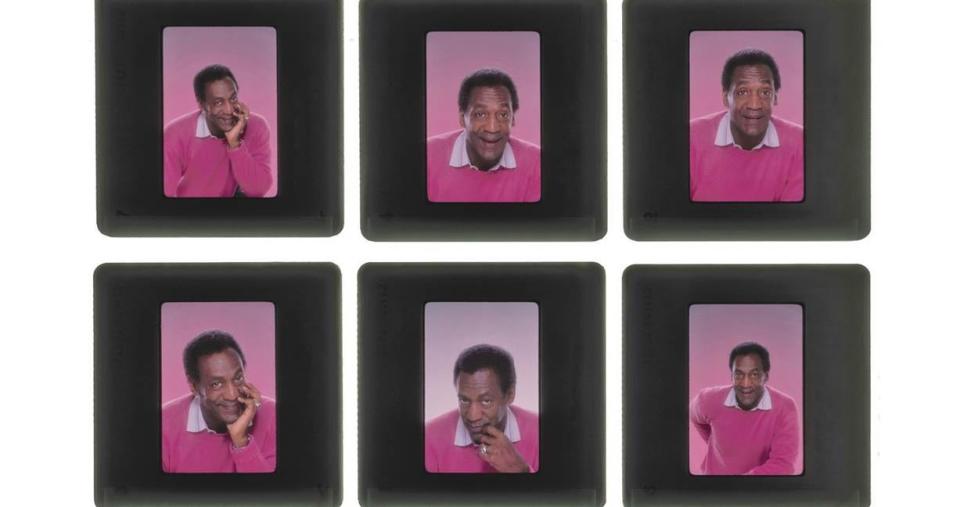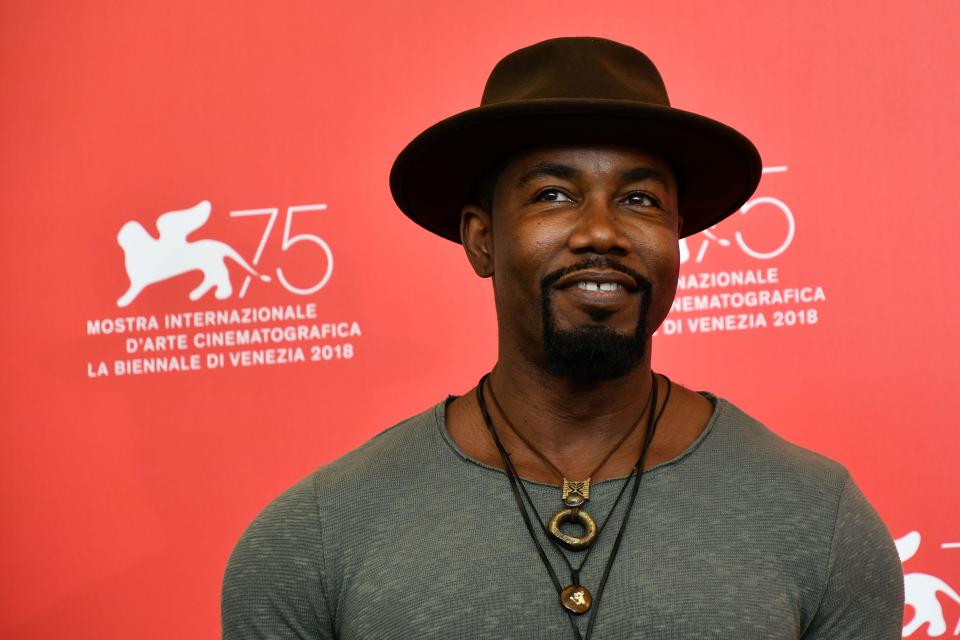'We Need to Talk About Cosby' wrestles with comedian's complex legacy in the wake of sex-abuse charges
Haven't had enough yet of Bill Cosby and the story of his spectacular rise and shocking fall?
"We Need To Talk About Cosby" is for you. Welcome to "the complexity of humanity," as this four-part docuseries, screening at the Sundance Film Festival Saturday and premiering on Showtime Sunday (10 EST/PST), puts it.
Directed by comedian/TV host W. Kamau Bell, "Cosby" serves up a compellingly nuanced look at the actor and stand-up comic formerly lauded as "America's Dad," but now an accused serial sex abuser whose alleged crimes took place even as he entertained and inspired millions and stood up for Black Americans.
Millions are implacably in one camp or the other – love him or loathe him. But it isn't that simple, Bell argues, as he embarks on a mission to reconsider the Cosby saga and wrestle with perplexing contradictions.
Ranked: All the best movies we saw at Sundance Film Festival (including Colin Farrell's 'After Yang')
Cosby spokesman Andrew Wyatt responded to the docuseries with a statement to USA TODAY. Wyatt reiterated that "Cosby vehemently denies all allegations waged against him," and complained that a "professional documentary" should instead target what he "prosecutorial violations ... He wants our nation to be what it proclaims itself to be: a democracy."

W. Kamau Bell: 'Can you separate the art from the artist'?
"Can you separate the art from the artist, and should you?" Bell asks near the end of the docuseries. "What if he isn’t the human being you thought he was, and what if his artistic achievement, his living example and his good works were so great that they changed the world – what then? That’s the Bill Cosby question."
The best thing that could happen from the series, Bell says in an interview with USA TODAY, is that it could create a space for people to talk about and process their conflicted feelings about Cosby and his groundbreaking 1984-’92 NBC comedy "The Cosby Show."
"The film is an invitation to consider conversations about how to create a safer world and do a better job of listening to people who have been sexually assaulted," Bell says.
By the end, even Bell, 48, who traveled the country talking to people about social issues in CNN's "United Shades of America," is drained by his Cosby quest, not least because he idolized the actor while growing up.
Sundance 2022: New Princess Diana documentary aims to 'explore our complicity' in her tragic life, death
He persisted, because "who I am and what I've done helps this project," Bell says. "It shows I'm able to navigate difficult conversations…I'm a Black kid who learned from (Cosby) and in some ways learned the lessons that helped me make this film."
Still, "this is hard. There were times I wanted to quit while making this," he sighs at one point late in the series.
Accusers devastated when court overturned Cosby's conviction
And then, just as Bell is wrapping up production, news breaks in June 2021 that the Pennsylvania Supreme Court overturned Cosby's 2018 sex crimes conviction on constitutional grounds, released him from prison after he served nearly three years of a 10-year sentence and erased his sex offender status. The ruling devastated his many accusers and enraged #MeToo advocates. (Prosecutors have since asked the U.S. Supreme Court to reconsider the case.)
"It was a good decision – for a bad man," Philadelphia criminal defense attorney Michael Coard says in the series.
The project largely steers clear of the tortuous legal case against Cosby, which included platoons of lawyers, two trials, several appeals, nonstop media coverage and the stunning reversal.
Instead, Bell interviews academics, comedians, historians, journalists, TV commentators, lawyers, sex therapists and sex abuse experts about why Cosby mattered in America's cultural history and how to reconcile whether he still matters now that we know all that we know.

Cosby's career breakthroughs
For baby boomers who want to stroll down memory lane, the first episode focuses on Cosby's career breakthrough in the 1960s as a comedian who delighted millions with his records who went on to his pioneering role in NBC's 1965-68 crime thriller "I Spy," the first TV show featuring a Black actor in a leading role equal to that of his white co-star, Robert Culp.
The heroic status Cosby achieved, especially with Black Americans, was genuine and lasting, as evidenced by the mix of pain and pride among Bell's interview subjects.
Actor/director Michael Jai White, 54, who was the first African American to portray a superhero in a major film (1997's "Spawn"), tells Bell the "Cosby Show" spinoff “A Different World” is "the best show for Black people ever because it made getting an education seem cool."
But he believes Cosby's accusers, and he can't forget the star betrayed women who loved, admired and trusted him. "You do that to someone, you’re a … monster," White declares in the film.
"There’s all the good he did and all the other things that I and many others believe he did," Bell says in the documentary. "Lots of people said no to sitting down and talking" about Cosby."

People such as Marc Lamont Hill, a professor at Philadelphia's Temple University, who is especially sharp about the early signs of Cosby's behavior if only we had not all "mutually agreed" to never connect the dots in, say, that old "Spanish fly" stand-up routine, in which Cosby enthusiastically endorsed an alleged aphrodisiac that would render women helpless.
"From Day One he was talking about putting things in women’s drinks and getting them to do what he wanted them to do. So when we fast-forward, it's not a huge leap to think that what he was talking about in the ’60s he was doing," Hill says in the first episode.
Cosby ascended in power, influence and ubiquity with such fare as the "Fat Albert" Saturday cartoon show in the 1970s and NBC's enormous hit "The Cosby Show."
For millions, Cosby became a figure of unquestioned moral authority; few imagined a villain could lurk behind that endearing façade, fooling an entire country, Bell says in the film. Except for the women who say he drugged and raped them – and until recently, they didn't talk about it. Ten of them tell their stories in the new project; some became activists, successfully lobbying to throw out statutes of limitation for sex crimes in multiple states.

"I told people that he wasn’t the nice person everyone thought but I couldn’t say specifically why because I was so humiliated. For years and years and years," says Victoria Valentino, a former Playboy bunny who says Cosby drugged and raped her in 1970.
One of Cosby's accusers, Eden Tirl, an actress who appeared on "The Cosby Show," tells Bell she felt awful when Cosby was sentenced to prison. "It was a sad day in the history of Black culture."
The academics Bell interviews help contextualize Cosby's place in the Black cosmos, and the loss many experienced as the tide of allegations began building in the fall of 2014.
Meanwhile, Cosby had already irritated scores of young Black comedians and activists as he took on the persona of an angry grandpa, publicly scolding Black youths for their clothes and behavior.
Most of the comedians Bell interviews are younger, hipper and bluer than Cosby; they were already sneering at Cosby's act compared to, say, Eddie Murphy or Richard Pryor. They had heard rumors of Cosby's alleged "philandering," and now his moralizing lectures made them less likely to embrace him.
Cosby's sanctimony was too much for comedian Hannibal Buress, who called Cosby a "rapist" in an October 2014 stand-up set in Philadelphia, referring to a lawsuit Cosby settled with a woman, Andrea Constand, who accused him of sexual assault.

Hannibal Buress' watershed moment
It was a watershed moment: A blurry cellphone video of Buress' rant quickly went viral; from that moment, Cosby's fall was ordained.
"Something about Hannibal's joke, plus the cellphone footage, plus the new era of social media, was explosive – it put the lie to (Cosby's) sanctimony," Renée Graham, associate editor and columnist for The Boston Globe, says in the film.
It's true, as Bell points out in the series, that Black Americans are all too aware that Black men have been repeatedly accused, imprisoned and "straight-up murdered" throughout history for crimes they did not commit. But "we can distinguish between Emmett Till and Bill Cosby," Bell tells USA TODAY.
Most of the people in the docuseries, including Bell, accept Cosby's guilt, but few are willing to toss him in the ash heap of history and walk away. They struggle with this task; Bell's film is about navigating that struggle, to look at what Bell calls "the whole Cosby."
"Black people do their best work when they look at America in an unvarnished way," he says. "Let's have the whole conversation (about Cosby). In this space (in the film), we’re going to do it."
Bell ends up answering the question he set for himself with a hopeful note.
"If we learn the lessons that Bill Cosby was trying to teach, then we all can create a world to make this Bill Cosby and others like him less possible," he says in the final episode.
This article originally appeared on USA TODAY: Bill Cosby's sex abuse charges, complex legacy explored in docuseries

 Yahoo Movies
Yahoo Movies 
